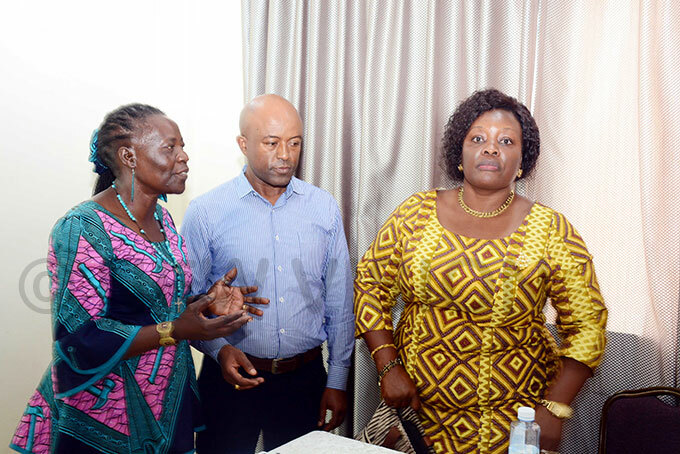Use cultural leaders and faith-based dialogue to prevent violent extremism
The organization also recommended the use of interfaith dialogues, which they discovered were a powerful tool in helping communities come together to discuss issues of violent extremism.
KAMPALA-The Organization for Social Science Research in Eastern and Southern Africa (OSSREA) has recommended for the use of cultural institutions and faith-based dialogue systems as a soft approach to preventing and restricting the youth from joining violent extremism and other terror campaign groups.
OSSREA, working in conjunction with the Inter-Governmental Authority on Development (IGAD) that is incorporated in eight African countries carried out a three-year study in selected communities in Kenya and Uganda, regarded as hot spots for conflicts and violent extremism, with an objective of establishing drivers to conflicts and violent extremism and came up with strategies to curbing the vice amongst the youth.
In Kenya, the research was conducted by the Peace and Development Network Trust (Peace-Net) and was extended to some parts of Somalia and South Sudan.
The body has consequently developed a training youth-led manual dubbed, "Youth-Led Interventions in Preventing and Countering Violent Extremism', which was unveiled in Kampala during a three-day training workshop for security officers involved in fighting terrorism and violent extremism. Florence Kirabira, the National Focal Point on small arms and light weapons represented the ministry of internal affairs.
The manual is aimed at, among other things, popularizing soft approaches as opposed to the usual conventional means of preventing and curbing conflicts and violent extremism in the IGAD region.
It is also intended to ‘train a critical mass of people, both in Uganda and Kenya to work with government agencies to help youth build resilience to violent extremism and build capacity to equip them with the knowledge to create awareness.
Dr. Truphena Mukuna, the OSSREA executive director said that their study had found out that as an alternative mechanism of solving problems in conflict and violent extremism-prone communities, governments ought to embrace cultural institutions and seriously engage the youth, who she said were vulnerable.
The organization also recommended the use of interfaith dialogues, which they discovered were a powerful tool in helping communities come together to discuss issues of violent extremism.

Lina Zedriga (left) a senior judicial officer, Alemu Tesfaye from OSSREA Ethiopia and Dr. Truphena Mukuna, the OSSREA executive director during a training workshop in Kampala. (Photo by Eddie Ssejjoba)
She said security agencies; mainly the police should embrace more of soft approaches rather than the use of militarism and brutality in dealing with youth suspected to have links with extremists.
In the slums of Galisa in the North Eastern Province of Kenya, Dr. Mukuna said, a Muslim nursery school has been built inside a Church ‘to show tolerance of one another and prevent children from dismissing others as nonbelievers'.
"Many times the police use excessive force and brutality and round up youth in ghettos suspected to have links with terrorist groups, but at times it is done without prior thorough investigations and end up victimizing even the innocent ones," she said.
She said, as a result, many youth hate the institutions and government, resorting to violent extremism as a way of revenging.
Dr. Mukuna cited the case of Gulu in Northern Uganda where she said the Lord's Resistance Army (LRA) traces were still vivid, where many of the ex-combatants, who are mainly youth, were still traumatized by the negative reception back home and some have been forced to join rebel groups in neighboring South Sudan.
Despite the presence of good policies towards helping the youth fight poverty, they were in some places marred by inconsistencies and have therefore not benefited all the youth.
She cited an example of Gulu where they found out that youth who had obtained loans under the Youth Livelihood scheme had failed to pay back because they had not been trained on how to use the money and ended up fleeing to war zones in South Sudan to avoid arrest by authorities, where, she said they had been recruited by wrong elements.
Senior judicial officer, Lina Zedriga, a co-principal investigator said the organization interacted with youth in slum areas of Makerere Kivvulu, Kisenyi, Katwe and in rural communities in Mayuge.
She said that strong religious beliefs, persistent unemployment, and poverty were some of the reasons why many youths had turned to conflicts.
She, however, said OSSREA were working with anti-terrorism and anti-human trafficking agencies to ensure the approach changes, ‘so that it is not about militarization and counter-reaction.